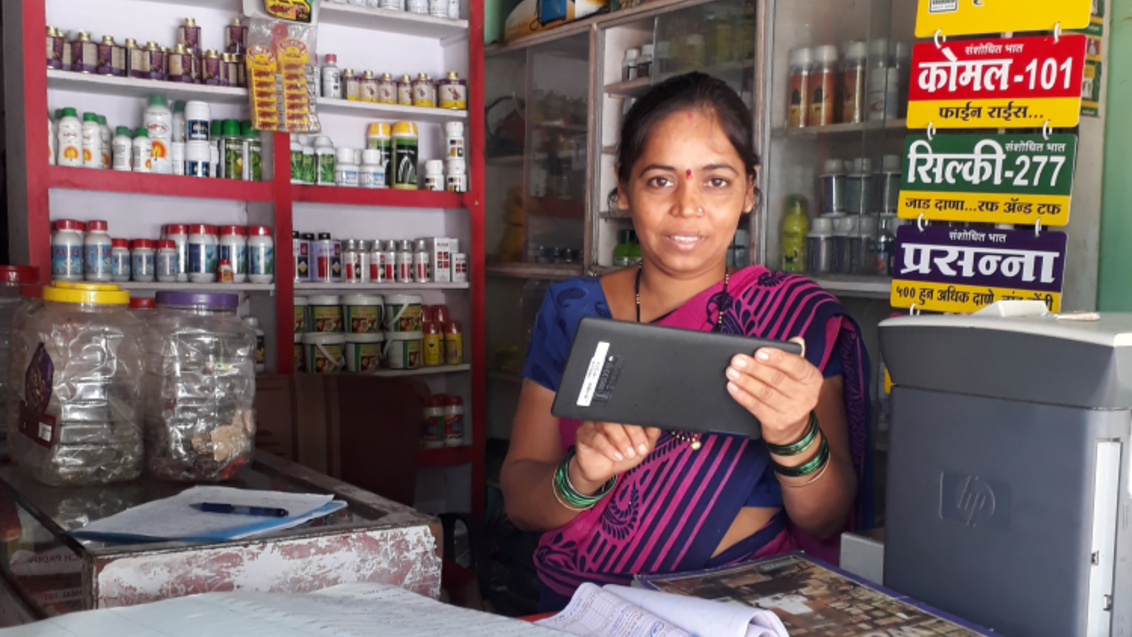Turning “I’d like to…” into “I’m succeeding”

By Yuan Zhou, Head of Agricultural Policy
Rural entrepreneurship is a major focus of our Foundation. How can more young people succeed in businesses connected to farming? Our recent study provides key pointers for India and Indonesia.
Young people and their role in agriculture and agribusiness are high on the development agenda. There are several good reasons for this. Many developing countries have very young populations. The “youth bulge” puts enormous pressure on governments to provide adequate education and jobs. Loss of urban employment during the pandemic forced many young people to return to rural areas. However, many of them want to avoid the grind of smallholder farming as practiced by their grandparents. Engaging youth in modern agribusiness opportunities is therefore essential.
India and Indonesia both have very large youth populations. If suitably supported, young people there can become agents of rural change. They tend to be better educated than previous generations and more receptive to new ideas and technologies. Many are also full of entrepreneurial drive. But young Indians and Indonesians who want to establish a farm or related business face numerous obstacles. It is often hard for them to get land, credit, farm inputs, training and insurance. They also find it difficult to access lucrative markets. Improvements are clearly called for.
What helps young people to succeed in agriculture and become successful entrepreneurs? How can governments and other organizations best contribute? Together with IFPRI, we took a closer look.
Our joint analysis examines drivers of youth entrepreneurship success in India and Indonesia. This forms part of a multi-country study. It focuses on four closely related dimensions: policy, institutions, technology, and individual development. The aim is to provide recommendations to policymakers, development organizations, and emerging businesses.
Policy support
Indian policymakers recognize the importance of youth entrepreneurship. They have designed a wide range of policies and programs. However, youth entering agribusiness still grapple with challenges. Access to technology, finance, institutional support, markets and business mentorship remains limited. Many rural young people also lack the skills and experience needed to start and run a business.
The Indonesian government also supports youth education, employment and entrepreneurship in many ways. The country has a National Strategy on Youth Entrepreneurship. However, budgets and capacity are often insufficient; implementation thus remains patchy. Rural youth, we found, would also benefit from closer coordination between government and non-government stakeholders. The latter include farmer organizations, companies along the value chain, academia, and donors.
Institutional support
In India, training for rural youth remains limited. It needs to be more systematically supported, matched to specific contexts and geared to actual needs. Training for future businesspeople should develop their entrepreneurial skills as well as technical know-how. Digitalization is a further key topic. India needs to increase investment in youth economic inclusion. Careful monitoring and evaluation will show what works and why, and should thus guide future approaches.
The major obstacle in Indonesia, our study suggests, is lack of access to credit. This is particularly true for young people in the eastern provinces. Access to training, extension and entrepreneurship education also needs improvement. As with India, the huge diversity of rural settings demands solutions that are location-specific.
Technical support
In Indonesia, digital technologies have already boosted young people’s entrepreneurial activities. However, the quality of infrastructure and internet services varies across the country. We believe that Indonesia should reduce this ‘digital divide’ by investing in skills development, energy access and connectivity. In India, most young rural people own a mobile phone. They often use it for education, extension services, social networking, job searches and financial services. Digital technologies offer further great potential to transform farming and related businesses.
Individual motivation and skills development
In Indonesia, additional work is required to encourage entrepreneurial mindsets and calculated risk-taking. Depending on where they live, however, youth entrepreneurs cannot always get affordable training of suitable quality.
In India, the perceived gap is more in vocational training. This currently tends to focus on initial skill development. That is clearly critical, but young entrepreneurs also require greater business and organizational support. They then need continued mentorship and support until their business is well established. Topics such as self-motivation, leadership and people skills are important here. More business incubator programs, furthermore, would help young entrepreneurs to keep in touch with research and innovation systems that can benefit their own activities.
